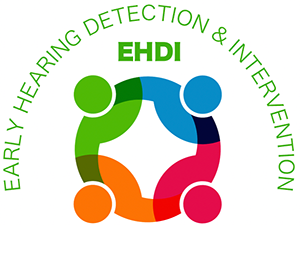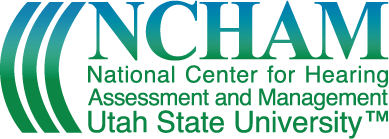Remote Hearing Aid Programming: A Tele-Audiology Simulation Experience
When: Thursday April 22nd 6:00 - 8:00pm
Friday April 23rd 3:30 - 5:30pm
Saturday April 24th 9:00 - 11:00am
Saturday April 24th 12:00 - 2:00pm
Wednesday April 28th 4:30 - 6:30pm
Friday April 30th 3:30 - 5:30pm
All times are Central Daylight Time
Where: UNL's Schmieding Academy for Hearing Healthcare, Lincoln Nebraska. Participants attend via Zoom.
Course Description
This training is a collaboration of the University of Nebraska-Lincoln (UNL) and the National Center for Hearing Assessment and Management (NCHAM) in cooperation with the Nebraska Speech-Language-Hearing Association (NSLHA).
Are you interested in trying out remote hearing aid programming or fine tuning? (Hour 1)
This training will allow you to try this as a hands-on remote simulated experience prior to seeing your first patient.
Are you interested in fitting pediatric hearing aids at a remote site via tele-audiology? (Hour 2)
This training will let you experience working with a remote technician to program and verify a hearing aid using RECD and speech mapping prior to trying it with a real patient.
This course is designed to provide participants with a simulated tele-audiology experience. The goal is to help participants feel more comfortable with tele-audiology, complete a hands-on simulation, and apply what they learn to their clinical practice. Participants access the course via zoom to work through hearing aid programming and verification simulations. They will partner with a UNL audiology graduate student who will act as their patient or remote technician.
Course Learning Objectives:
- After this course, participants described how to remotely provide hearing aid services for young children and their families
- After this course, participants were able to remotely program and/or fine-tune hearing aids (Hour 1)
- After this course, participants were able to remotely verify hearing aid programming through RECD measures and speech mapping (Hour 2)
Course Agenda
Hour 1: Remote Programming via a Hearing App
- 5 minutes: Introduction
- 50 minutes: Work through a hearing aid simulation experience remotely programming and/or fine tuning the programming through the hearing aid manufactuer’s app (UNL student will serve as the ‘patient’ or ‘patient’s parent’)
- 5 minutes: Evaluation
Hour 2: Remote Programming via a Spoke Site
- 5 minutes: Introduction
- 50 minutes: Work through a hearing aid simulation experience remotely programming and verifying a hearing aid by obtaining a RECD measurement and completing speech mapping (UNL student will serve as the remote technician and a manikin will serve as the patient)
- 5 minutes: Evaluation
The simulations were designed at an introductory level. However, the participants can proceed at their own pace depending on their knowledge level.
If you would like to participate in one or both of these simulated experiences prior to trying it with a real patient, register here using this link: Course Registration
The following products and services may be used during the course: Phonak, Oticon, Widex, and Resound hearing devices and apps. Audioscan Verifit
This course is not recommending or condoning specific manufacturers or equipment. The training focuses on devices/equipment commonly used for pediatric audiology since this is NCHAM’s focus.

Continuing Education Credit
This course is offered for up to 0.2 ASHA CEUs (introductory level, professional area).
Please contact Janet Seelhoff, NSLHA Executive Director, with any questions about CEUs.
Financial Disclosures: UNL students will be compensated by NCHAM. Partial funding provided by Cooperative Agreement #1 H7DMC37560100 with the Health Resources and Services Administration’s Maternal and Child Health Bureau, the Association of Maternal & Child Health Programs (AMCHP) to Utah State University – National Center for Hearing Assessment and Management. Hannah Ditmars, Stacie Ray, and Emily Wakefield are employees of the Department of Special Education and Communication Disorders within the College of Education and Human Sciences at the University of Nebraska-Lincoln.
Non-Financial Disclosures: Drs. Ditmars, Ray, and Wakefield have no non-financial disclosures. However, UNL received equipment and supplies from NCHAM for this training.
The University of Nebraska does not discriminate based on any protected status. Please go to http://www.unl.edu/equity/notice-nondiscrimination.


